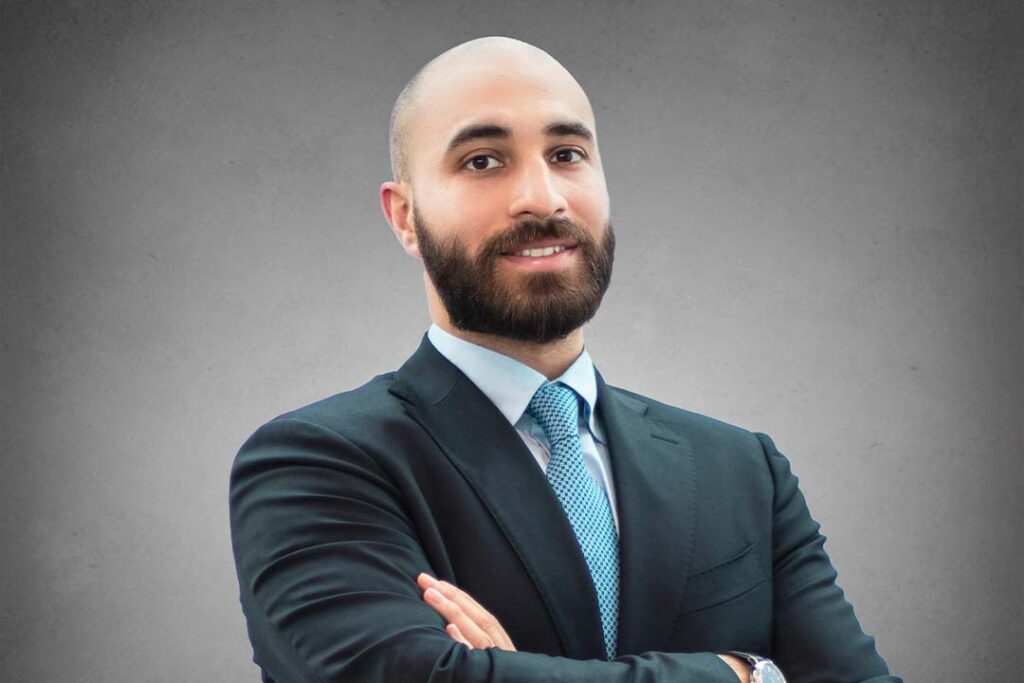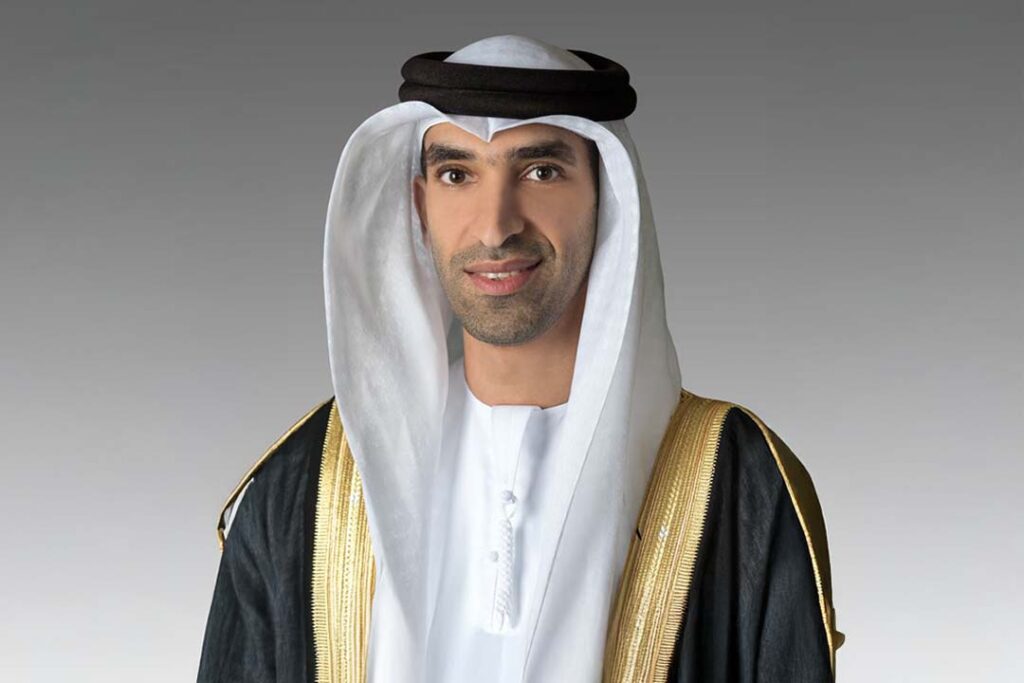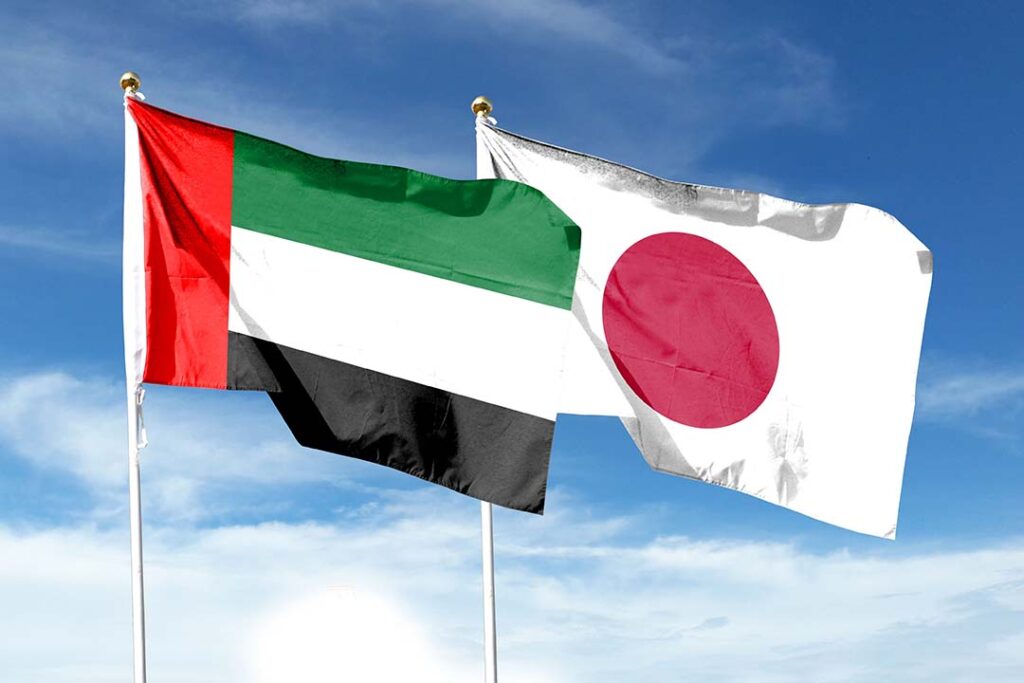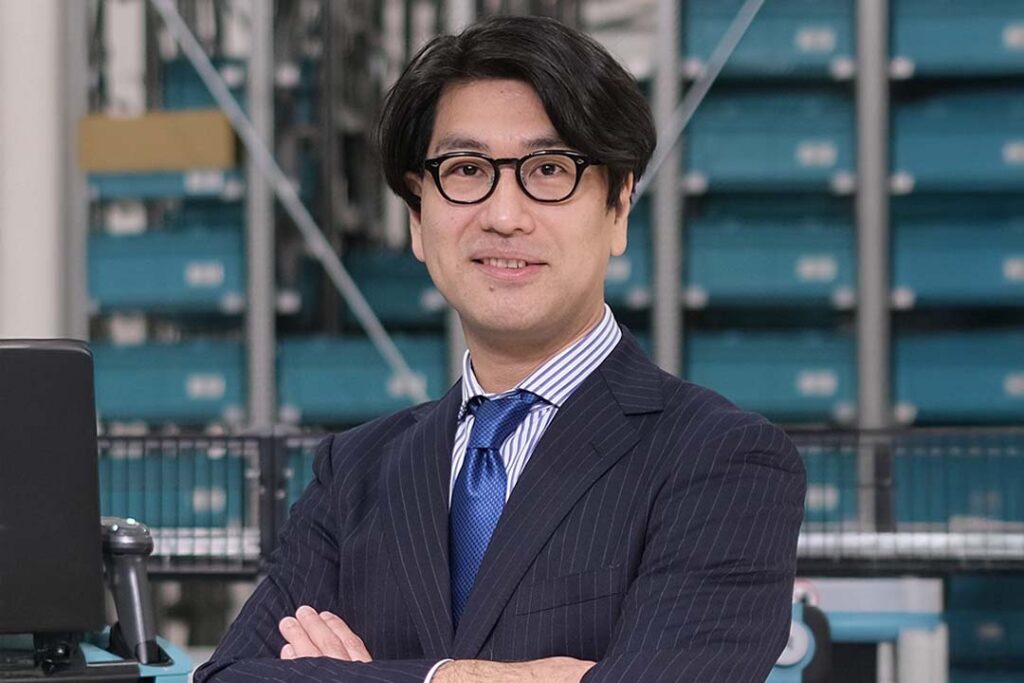Bridges: How would you describe Japan-UAE economic relations today?
Isomata: Having celebrated 50 years of diplomatic relations last year, Japan and the UAE are now at the outset of a promising 50 more years of a robust and ever-developing relationship.
Rather than enumerating achievements in the past and present cooperative relations, starting from oil and gas, to infrastructure, outer space, food, health care, retail business, and to creative industries, tourism, etc., I would like to highlight two recent examples that will help develop our relations further.
With the establishment of the implementation mechanism last year of the Comprehensive Strategic Partnership Initiative launched earlier between our governments, all of the five subcommittees, which include one dedicated to economic, trade, energy and industry cooperation, as well as a ministerial plenary session, have been successfully held this year.
We will continue to use all the mechanisms, programs and projects at hand, and will also make every effort to find new avenues for further cooperation.
Akio Isomata, Ambassador of Japan to the United Arab Emirates
With the mechanism set in motion and to be utilized every year, our countries are now better equipped to discuss wide-ranging cooperation in a concrete manner and on a project basis.
I would also like to mention a new cooperation scheme involving Japanese start-up companies. Earlier this year, our countries launched the JU-CAT (Japan- UAE Coordination scheme for Advanced Technology) to enable Japanese startups with advanced technologies to collaborate with UAE partners in fields such as hydrogen and ammonia, among others. As the world makes rapid strides on the path to decarbonization, Japan and the UAE can together accelerate their efforts, including those of the UAE regarding the hosting of COP28 (the 28th U.N. climate conference), making the best use of this scheme .
Youth exchanges bring countries closer together. How important is this for Japan-UAE relations?
People-to-people exchanges, especially among youths, form the base of solid bilateral relations between countries, and this is an area where Japan has great strength.
As the UAE puts further efforts in diversifying its economy and in sending skilled Emiratis into the private-sector workforce, there are so many things both countries can do together.
As an example of such cooperation, the Japan International Cooperation Center (JICE) provides an internship program for UAE university students at Japanese companies, in which UAE students are offered an opportunity to learn and work at Japanese firms for eight weeks in total, either in Japan, in the UAE or in both.
Having celebrated 50 years of diplomatic relations last year, Japan and the UAE are now at the outset of a promising 50 more years of a robust and ever-developing relationship.
On the front of educational exchanges, the Youth Ambassadors Program, launched in 2022 by the UAE government and JICE, invites UAE undergraduate students to counseling sessions, Japanese language and culture courses and a study trip to Japan with the aim of facilitating the participants’ enrollment in degree programs at graduate schools in Japan.
At a younger level, the Tokyo Metropolitan Government has started a high school student exchange program with the UAE, and a group of around 20 students from Tokyo visited the UAE this year and last, and it is expected to continue every year. These are just a few examples, but through these efforts, I believe we can further consolidate our bilateral relations toward the future.
How is the embassy ensuring Japan and the UAE remain close friends and economic partners?
The central role of our embassy is to be a catalyst for promotion of friendly and cooperative relations between our countries.
For that purpose, we will continue to use all the mechanisms, programs and projects at hand, including those mentioned above, and will also make every effort to find new avenues for further cooperation.
Here, I would like to proudly refer to the trust existing between our countries, which constitutes the foundation of our relations and which makes us such strong partners as we are today. Trust between individuals is not easily earned, nor is trust between countries. We have had a history of excellent cooperation for more than 50 years, and by focusing on people-to-people exchanges and human resource development cooperation continuously through all these years, we built up unwavering trust in each other.
We really appreciate the people of the UAE put a great trust in such values as diligence and discipline that Japanese people cherish and uphold, because this really made our relations rock-solid. Let me say that the mutual trust is also exemplified in the introduction of full visa exemption toward the Emirati ordinary passport holders, making the UAE the first country to enjoy such privilege in the Gulf region. I hope the existing trust will be further strengthened by welcoming a deluge of Emiratis visiting Japan.
The UAE hosted COP28. How do you see Japan and the UAE coming together to address global challenges?
As the world forges ahead on the path for decarbonization, Japan is of the view that: We should advance cooperation toward the goal of carbon neutrality/net-zero emissions while ensuring energy security; we should recognize there are various and practical pathways toward that goal depending on the circumstances of each country.
Japan, as the chair of the G7 (group of seven leading industrial nations) this year, led the group’s discussion having these in mind, and believes that we can cooperate with the UAE as the host of the COP28 for its success and can make a substantial contribution together to the global efforts in tackling climate change.
With commitment, ambition, technology and resources made available by the two countries to the maximum extent, I believe Japan and the UAE can be together at the forefront of leading the global efforts in tackling climate change issues.
In July, when Prime Minister Fumio Kishida visited the UAE, we launched a vision to establish the Middle East as a hub for clean energy and decarbonization under the Global Green Energy Hub initiative, and both governments have already started to work on it.
Prior to this, both countries agreed to establish the Joint Crediting Mechanism to contribute to the greenhouse gas reduction targets through joint projects. Japanese companies also showcased their innovative technologies at the venue of COP28. With commitment, ambition, technology and resources made available by the two countries to the maximum extent, I believe Japan and the UAE can be together at the forefront of leading the global efforts in tackling climate change issues.











